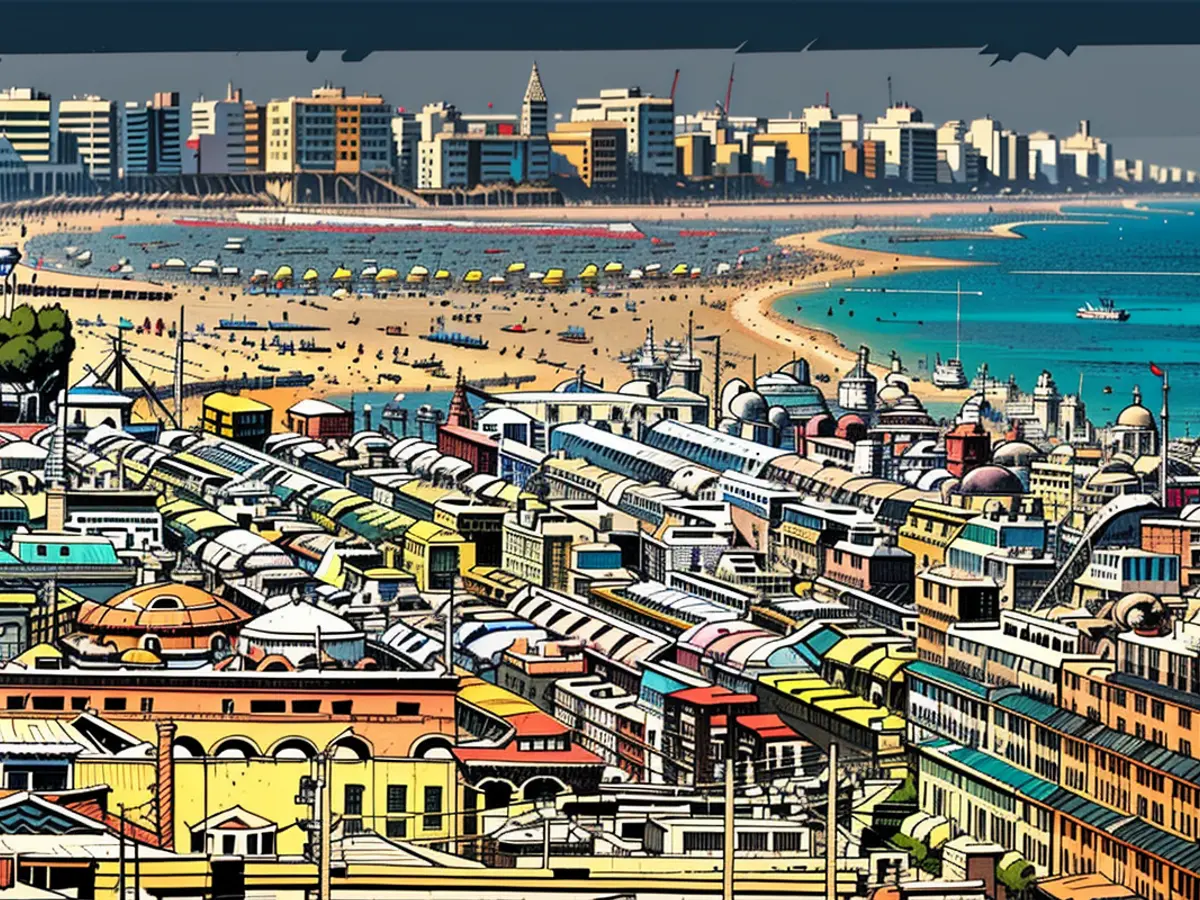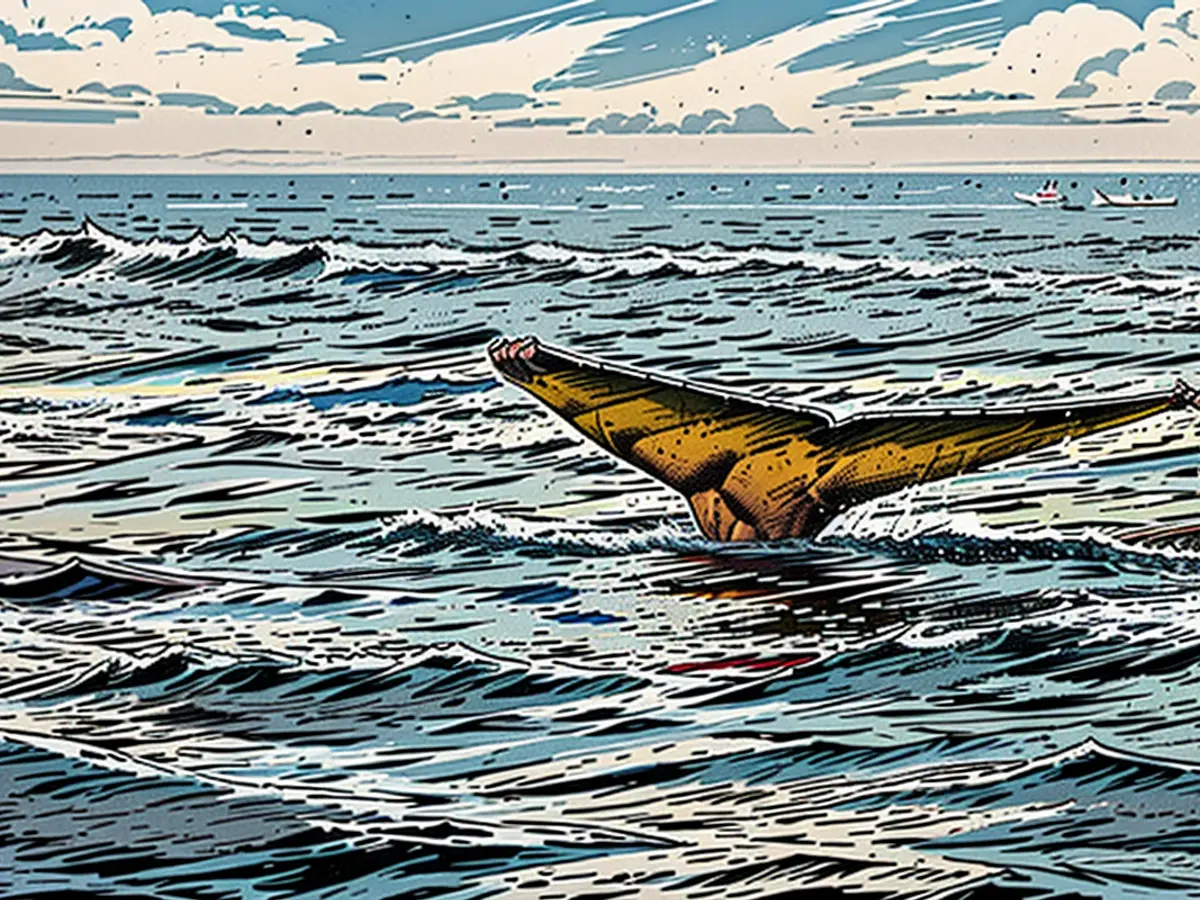In Italy, the struggle for coastal shores persists.
Italy's Beach Protesters Make Waves for the First Time, Calling for More Public Spaces
For the first time in Italian history, beach operators are staging a strike, and a citizen-led movement is pushing for fewer sun loungers and umbrellas. Some operators worry about losing their concessions, while others hope for more open spaces.
"Give us back our beaches!" is the battle cry of the "Mare Libero" (Free Sea) movement, which has been advocating for more public spaces along Italy's coast since 2019. This year's "Take Back the Beach" action, a play on Bastille Day, took place on July 14th and saw beaches from Venice to Campania occupied north to south. Protesters oppose the privatization of Italy's beaches, with 69% of which are currently occupied by beach concession holders, as highlighted by geologist Mario Tozzi.
In the past, beach operators have dismissed the protests. However, this year, they've taken action. On August 9th, they staged their first strike, and announced two more strikes on August 19th and 28th. This time, beach concession holders could be facing a make-or-break situation.
"A typical Italian drama," sighs a middle-aged woman in the Ligurian resort of Zoagli. She had recently visited Paraggi, near Portofino, she told ntv.de. She wanted to swim there, but the small beach was filled with sun loungers, and it was difficult to access the water due to the cliffs nearby. She had to walk quite a distance before finding a path leading to the sea and a free beach.
Paraggi is not an exception. The same goes for the Venetian Adriatic resort of Jesolo, where 69% of the beaches are occupied by beach concession holders, and Rimini in Emilia Romagna, where 90% are occupied, according to 2019 surveys by environmental organization Legambiente.
"We chose the date of July 14th for the 'Take Back the Beach' action for two reasons," Roberto Biagini, chairman of "Mare Libero," told the daily newspaper La Stampa a few days ago. Firstly, it symbolized a liberation act in reference to the French Revolution. Secondly, it reminded people of a 2016 Constitutional Court decision that declared the automatic extension of concessions to be illegal. "That's why we're going from beach to beach, explaining to people that they have the right to lie down along the beach line," Biagini said in the interview.
In the spring, members of Mare Libero occupied the beach of the luxury beach club Twiga. A day at Twiga costs 600 euros for a lounger, umbrella, and exclusive comfort. The security manager of Twiga in Ostia near Rome called the police. However, the police could only confirm that the occupiers were doing nothing illegal.
The beach concessions end on December 31st, 2023. The government's attempt to extend them until December 31st, 2024, was deemed illegal by Italy's State Council.
For beach concession holders, the protesters of "Mare Libero" are considered bothersome opponents who fail to understand the financial investments involved. One operator told ntv.de earlier: "You must not forget that it's our investments that give these sandy areas any value."
The "Mare Libero" vs. Beach Dispute
The "Mare Libero" group is concerned about the lack of public beaches, while beach concession holders are worried about the implementation of the Bolkestein Directive. This directive, from 2006, requires expired concessions to be put out to tender, rather than automatically being renewed. Italy signed the directive in 2016, but all governments have managed to postpone its implementation thus far.
A recent attempt to implement the directive was made at the beginning of this year, arguing that only 19% of Italy's coast is used for beaches, leaving plenty of free beaches that could be allocated through tender. However, this attempt was halted by both the EU Commission and Italy's State Council, as it did not differentiate between actual bathing beaches and coastlines that could be cliffs, urbanized areas, industrial facilities, or coastal roads. Italy's competition authority has also recently reminded municipalities and regions to put expired concessions out to tender by the end of this year.
This explains the strike, in which 80% of beach concession holders participated, including Capalbio, a popular resort in Latium. Notably, the strike involved keeping sun loungers and umbrellas closed from 7:30 AM to 9:30 AM, a time when beachgoers are less likely to be present. The concession holders want guarantees from the government that they will get their investments back if they lose the concession.
While this demand may seem logical, it has its caveats. Agostino Biondo of "Mare Libero" told ntv.de that the beach operators knew the rules when they signed the concession contract. According to paragraph 49 of the shipping regulations, structures that the operator has erected and are difficult to remove become the property of the state without compensation. The two parties could have negotiated different terms, but they didn't, so the beach operators have no legal right to compensation.
For "Mare Libero," this could be an opportunity to rebalance the relationship between public beaches and beach concessions, as all beaches revert to the state with the expiration of the concessions. They suggest a ratio of 60% public beaches to 40% beach concessions.
The European Union has been closely watching the "Mare Libero" vs. Beach Dispute in Italy, as it involves the implementation of the Bolkestein Directive, which requires expired concessions to be put out to tender rather than automatically renewed. If successfully implemented, this directive could lead to a greater balance between public beaches and beach concessions across Europe.
Following the first strike by Italian beach operators, the European Union is urging the Italian government to address the concerns of both parties and find a solution that adheres to the Bolkestein Directive, ensuring a fair distribution of beach access for all Italian citizens and tourists.








